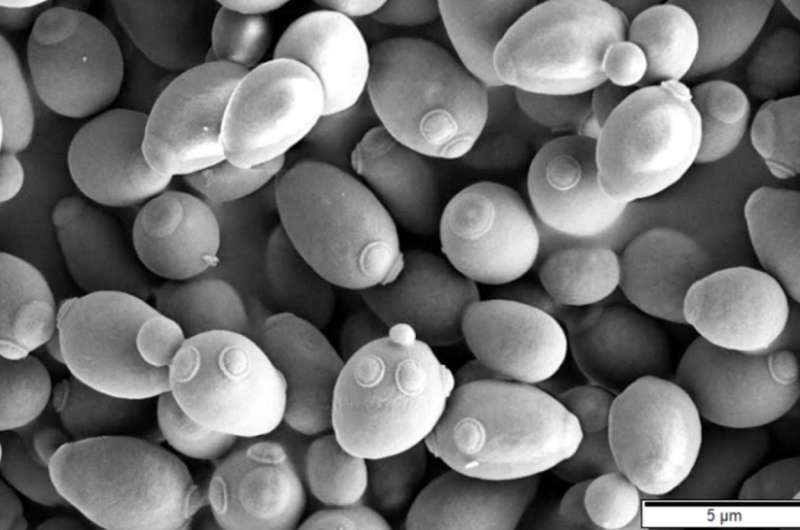Scientists report completion of chromosome XI, a major step towards creating the world's first synthetic yeast
Originally published by University of Nottingham, on November 8, 2023
Saccharomyces cerevisiae, SEM image. Credit: Mogana Das Murtey and Patchamuthu Ramasamy/CC BY-SA 3.0
A UK-based team of Scientists, led by experts from the University of Nottingham and Imperial College London, have completed construction of a synthetic chromosome as part of a major international project to build the world's first synthetic yeast genome.
The work, which is published in Cell Genomics, represents completion of one of the 16 chromosomes of the yeast genome by the UK team, which is part of the biggest project ever in synthetic biology; the international synthetic yeast genome collaboration.
The collaboration, known as "Sc2.0" has been a 15-year project involving teams from around the world (UK, US, China, Singapore, UK, France and Australia), working together to make synthetic versions of all of yeast's chromosomes. Alongside this paper, another nine publications have also been released from other teams describing their synthetic chromosomes. The final completion of the genome project—the largest synthetic genome ever—is expected in 2024.
This effort is the first to build a synthetic genome of a eukaryote—a living organism with a nucleus, such as animals, plants and fungi. Yeast was the organism of choice for the project as it has a relatively compact genome and has the innate ability to stitch DNA together, allowing the researchers to build synthetic chromosomes within the yeast cells.



Comments
Post a Comment